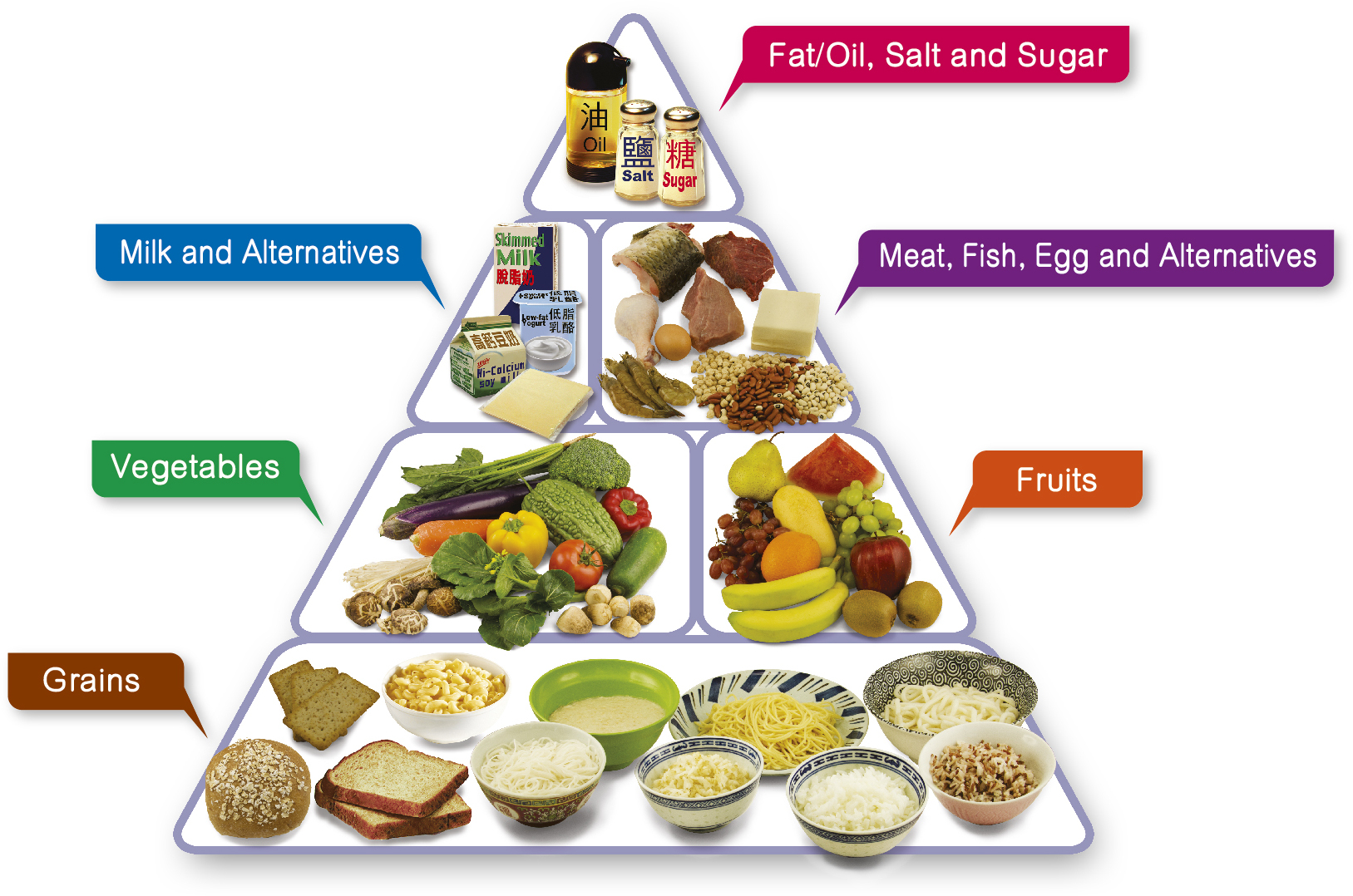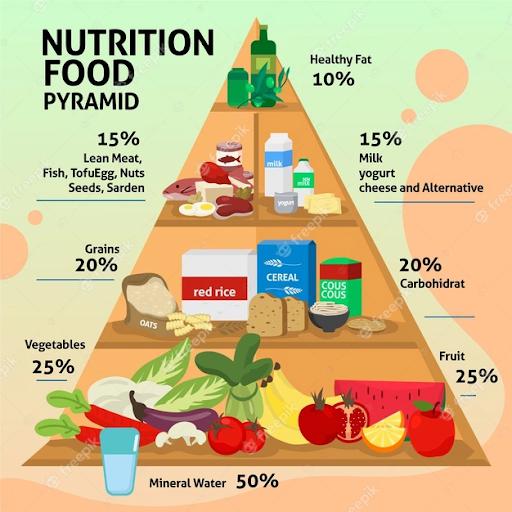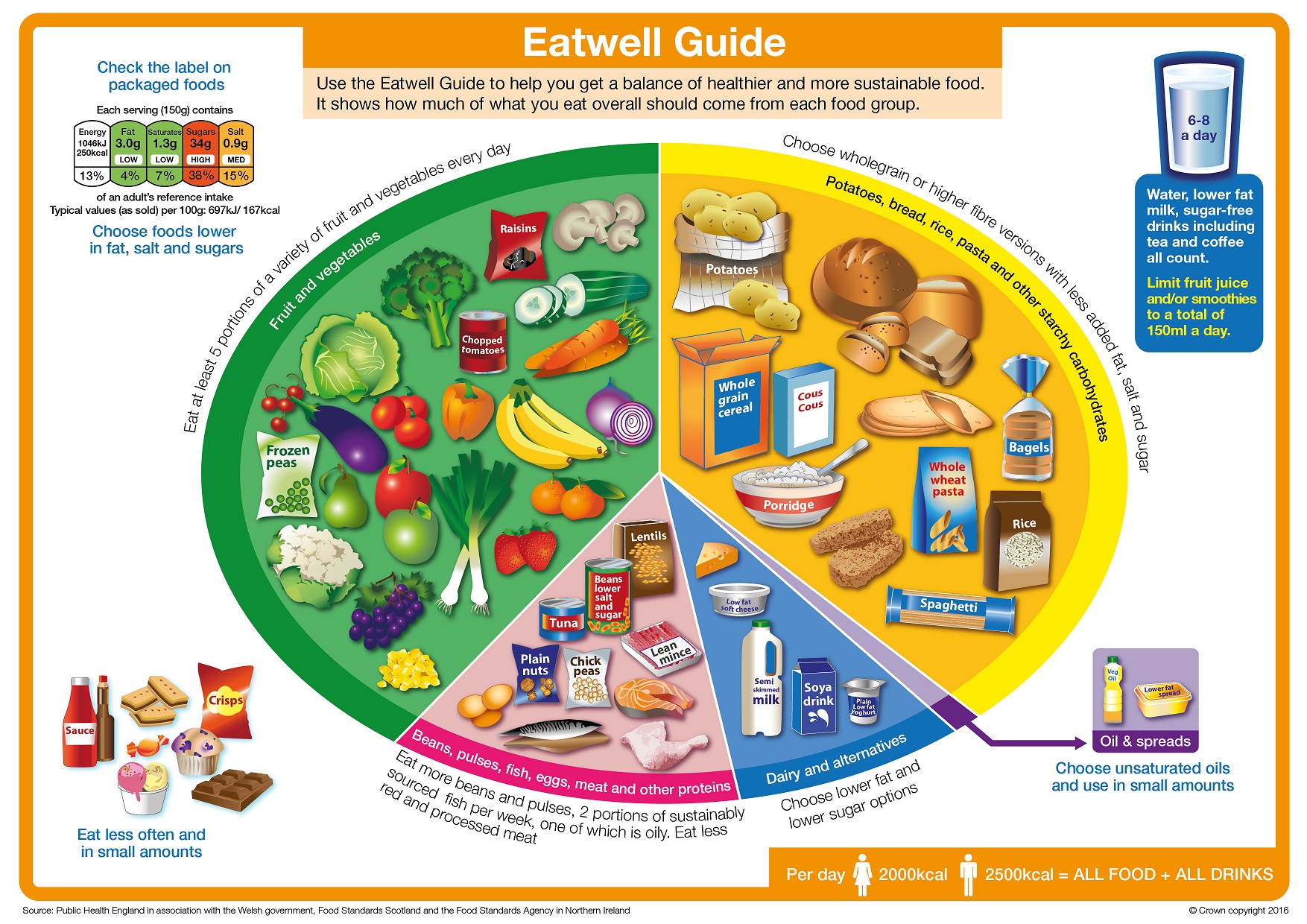Imagine feeling more energized every day, managing your weight without stress, and boosting your overall health—all by making simple changes to what you eat. This is the magic of a balanced diet.
Have you ever wondered why some people seem to have endless energy and glowing health? The secret often lies in their plates. A balanced diet is not just about cutting calories or avoiding certain foods; it's about nourishing your body with the right mix of nutrients it craves.
You'll discover how to create a diet that fuels your body and mind, helping you feel your best every single day. Keep reading to unlock the secrets of a balanced diet and transform your eating habits effortlessly.

Credit: www.chp.gov.hk
Importance Of A Balanced Diet
A balanced diet helps the body stay strong and healthy. It provides energy for play and study. Every meal should have different types of food. Fruits, vegetables, grains, and proteins are important. They help the body grow and repair itself.
Good food choices make you feel happy and active. They help keep diseases away. Eating a mix of foods gives vitamins and minerals. These nutrients are needed for a healthy mind. Skipping meals is not good. It makes you tired and grumpy. Healthy snacks can be fun and tasty.
Drinking enough water is crucial. It keeps the body hydrated. Water helps all the organs work well. Avoid too much sugar and salt. They can make you sick later. Remember, balance is key to a healthy life.
Key Nutrients For Health
Proteins help build muscles and repair tissues. They are found in meat, beans, and eggs. Eating proteins keeps you strong and healthy. They are important for growing kids. Choose lean meats and fish for good health.
Carbohydrates give energy. Your body needs them to move and play. Bread, rice, and pasta are rich in carbohydrates. Pick whole grains for better health. They help you stay active all day.
Fats protect organs and keep skin healthy. They are in nuts, oils, and butter. Eat healthy fats for a balanced diet. They are important for brain health. Avoid too much fat to stay fit.
Vitamins help the body work well. They boost the immune system. Fruits and vegetables are full of vitamins. Each vitamin has a special job. They help you stay healthy and strong.
Minerals build strong bones and teeth. They are found in milk, cheese, and green vegetables. Calcium and iron are key minerals. They make sure your body works right. Eat foods rich in minerals every day.
Water keeps you hydrated. It is important for every body part. Drink water to stay healthy. It helps with digestion. Water also keeps skin fresh and glowing.
Benefits Of A Balanced Diet
Eating a balanced diet helps control weight. It provides the body with the right nutrients. It reduces cravings for junk food. This helps maintain a healthy weight.
Good foods boost energy. Healthy meals make you active all day. They provide the energy needed for daily tasks. Avoid feeling tired by eating right.
A balanced diet supports the mind. It improves mood and reduces stress. Healthy foods keep the brain sharp. They make you feel happy and relaxed.
Eating well protects against illness. It strengthens the immune system. A strong body fights off germs better. This reduces the risk of getting sick.

Credit: www.vietnammedicalpractice.com
Creating A Balanced Meal Plan
Eating right means knowing how much to eat. Portion control helps you not overeat. Use a smaller plate to help. Fill half the plate with veggies. Use the other half for proteins and grains. This keeps your meal balanced.
Eating from all food groups is important. Include fruits, vegetables, grains, proteins, and dairy. This gives your body the nutrients it needs. Try to eat different colors of fruits and veggies. Each color has different benefits. Variety makes meals fun and healthy.
Eating at the right times keeps your body happy. Have three meals each day. Breakfast, lunch, and dinner. Add two small snacks in between. This helps keep your energy up. Don't skip meals. It makes you feel tired and hungry.
Tips For Maintaining A Balanced Diet
Nutrition labels show important food information. Check calories and serving sizes first. Look for low sugar and sodium. Pay attention to fat content. Vitamins and minerals are important for health. Choose foods with high fiber. Ingredients are listed from most to least. Avoid foods with many chemical names.
Snacks should be nutritious and satisfying. Fruits and nuts are great choices. Yogurt is a healthy option. Whole-grain crackers are good too. Pick low-fat cheese for protein. Vegetable sticks are crunchy and healthy. Avoid sugary snacks. Drink water instead of soda.
Fruits and vegetables are full of vitamins. Add them to every meal. Salads are easy to make. Mix different colors for more nutrients. Smoothies are tasty and healthy. Steamed veggies keep their vitamins. Frozen fruits are good in winter. Try new recipes with veggies. Juices are refreshing but eat whole fruits too.
Overcoming Common Diet Challenges
Cravings can be tough. Plan your snacks wisely. Choose fruits or nuts. Drink water to feel full. Distract yourself with hobbies. Stay strong and focused.
Eating out is fun. Pick healthier options on the menu. Choose grilled over fried. Ask for sauces on the side. Share your meal with a friend. Enjoy but stay mindful.
Plans help you succeed. Set clear goals for yourself. Write them down. Track your progress weekly. Celebrate small wins. Stay committed to your plan. You can do it!
Role Of Hydration
Drinking enough water is very important. Our bodies need water to work well. Kids should aim for 6-8 cups of water every day. Adults need more, usually about 8-12 cups. Carry a water bottle to help remember. Drinking water often keeps our bodies healthy. It helps us feel good and do our best.
Dehydration means your body doesn't have enough water. Signs include feeling thirsty, having dry skin, and feeling tired. Sometimes you might feel dizzy or have a headache. If you notice these signs, drink water right away. It helps your body feel better. Staying hydrated is key to avoiding these problems.
Some foods help keep us hydrated. Fruits like watermelon and oranges are full of water. Vegetables such as cucumbers and lettuce also have lots of water. Eating these foods is a tasty way to stay hydrated. They help our bodies stay strong and healthy. They are also fun to eat!
Integrating Exercise With Nutrition
Exercise uses energy. This energy comes from food. Calories are units of energy in food. More exercise needs more calories. Eating enough calories helps you stay strong. Listen to your body. It knows what it needs. Drink water. Water keeps you hydrated.
After exercise, your body needs fuel. Protein helps muscles grow. Carbohydrates give energy. Eat a healthy snack soon after working out. Good choices include yogurt or a banana. These foods help recover muscles. Recovery is important for growth.
Balance exercise with healthy eating. Exercise needs energy. Food provides this energy. Choose foods with vitamins and minerals. They help the body function well. Don't forget fiber. Fiber helps digestion. Balance keeps you healthy and happy.

Credit: ukhsa.blog.gov.uk
Frequently Asked Questions
What Are The 7 Things You Need In A Balanced Diet?
A balanced diet includes carbohydrates, proteins, fats, vitamins, minerals, fiber, and water. These nutrients support overall health, energy, and bodily functions. Eating a variety of foods ensures you get all these essential nutrients, promoting wellness and preventing deficiencies.
What Is The Balance Diet?
A balanced diet includes a variety of foods in the right proportions. It provides essential nutrients for energy and good health. Incorporating fruits, vegetables, proteins, grains, and dairy ensures you get vitamins, minerals, and fiber. Limit sugar, salt, and saturated fats for optimal well-being.
What Foods Should I Eat For A Balanced Diet?
Eat a variety of fruits, vegetables, whole grains, lean proteins, and healthy fats. Include dairy or dairy alternatives for calcium. Stay hydrated with water. Limit processed foods, sugar, and salt. Choose diverse, colorful foods for balanced nutrition.
What Are 5 Balanced Diets?
1. Mediterranean diet emphasizes whole grains, fruits, vegetables, and healthy fats. 2. DASH diet focuses on reducing sodium while incorporating lean proteins and vegetables. 3. Vegetarian diet includes diverse plant-based foods like legumes and grains. 4. Flexitarian diet combines plant-based meals with occasional meat. 5. Pescatarian diet includes fish alongside plant-based foods.
Conclusion
A balanced diet boosts your health and energy. It nourishes the body with essential nutrients. Eating diverse foods keeps you strong and active. Vegetables, fruits, grains, and proteins are crucial. They support growth and repair. Limit sugar and salt for better health.
Hydration is also key; drink plenty of water. Small changes in diet make a big difference. Listen to your body and adjust as needed. A balanced diet is a step towards a healthier life. Prioritize it daily for lasting benefits.
.png)






0 Comments